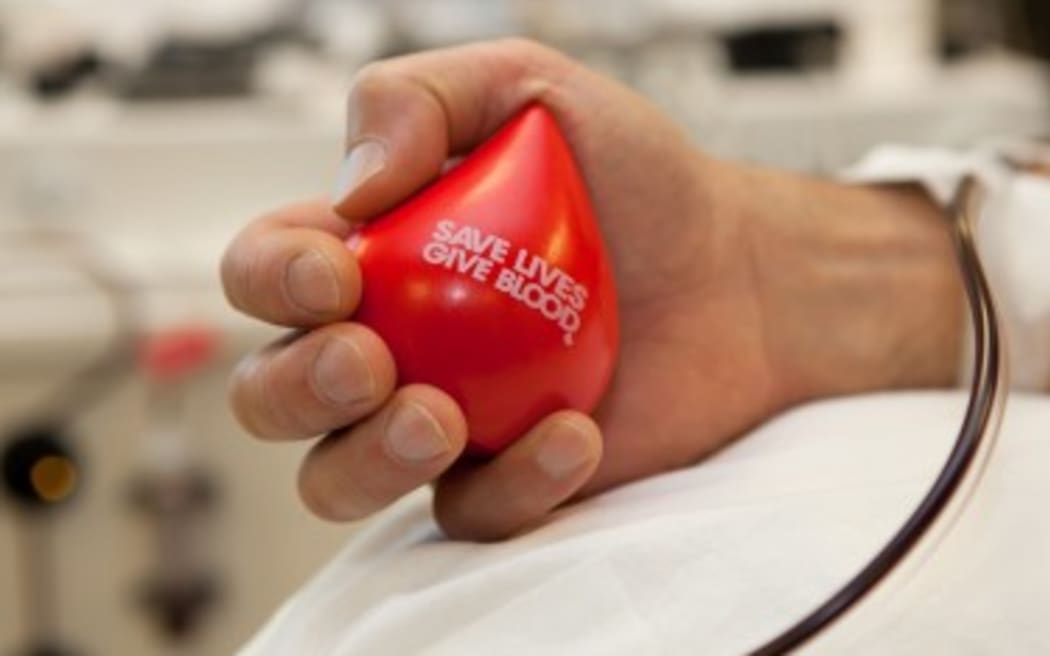The New Zealand Blood Service (NZBS) needs to fill 32,000 appointments over summer ... a tough ask at a time when donations tend to dip. But there are still ways to give blood and plasma while on holiday.

NZ Blood Service Photo: NZ Blood Service
The Blood Service's national marketing and communications manager Asuka Burge said while they were grateful to donors in December who helped to keep stocks up during the Christmas period, January had a lot of empty appointments.
"Obviously during the holiday period giving blood or plasma isn't necessarily top of mind ... it's about spending time with family and friends.
"We've got a lot of empty appointment slots in January, and we would love to see those filled," she said.
"We've still got between now and February, about 20,000 appointments still to fill just in January alone. 10,000 of those are the regular blood donations and 10,000 are plasma donations."
Even if people were in other parts of New Zealand over summer, there were donation centres all over the country and mobile blood drives too, said Burge.
She encouraged people to download the NZ Blood Donor app which has a map of all the available locations.
People had the option of donating either blood or plasma.
A blood donation, which is the red stuff, takes about an hour.
"Each donation can be split into three different components so red cells, plasma and also platelets ... that can save up to three lives.
"Blood only lasts about 35 days so that's why we need continuous donations to make sure that we've always got blood there available for patients."
Plasma, on the other hand, takes about an hour and a half to donate and it is purely donating the plasma component of blood.
"So the red stuff you keep but we take the gold, liquid part of your blood."
"It's certainly one of those amazing parts of your body actually, that can be made into eleven different blood products which have a longer shelf life but can help a lot of people, particularly people with ongoing conditions."
Patients with immune deficiencies typically required plasma, said Burge.
"They may need a plasma product once every seven days for the rest of their lives or for months.
"It is a long-term treatment but allows them to take those ... antibody-fighting elements that lives in plasma and they can live a normal life like you and I which is amazing."
Meanwhile, platelets only last seven days and they help to clot blood.
"They are definitely useful in things like surgeries to help patients get through these treatments as well."
Mad cow disease restrictions to lift

File photo: Bovine spongiform encephalopathy (BSE), commonly known as mad cow disease, is an incurable and invariably fatal neurodegenerative disease of cattle. Photo: RNZ / Richard Tindiller
People who have lived in the UK, France or the Republic of Ireland for a total of six months or more between 1980 and 1996 are currently permanently ineligible to donate blood in New Zealand.
This is because of CJD and vCJD – the human form of “mad cow disease”.
However, Burge said that rule was due to change this year.
"We are as excited as everyone else about that restriction being lifted, but it's not lifted yet ... we'll let people know as soon as it does."
"[With] kiwis being travellers ... it ruled out a lot of people [but] we're really looking forward to welcoming those people back this year."
And if you were worried about Covid-19 disrupting opportunities to give blood, Burge said that you were eligible after seven days from your first day free of symptoms or after the day from your last positive test (if you have no symptoms).
For all other criteria and how to do it, visit the NZ Blood Service website.

